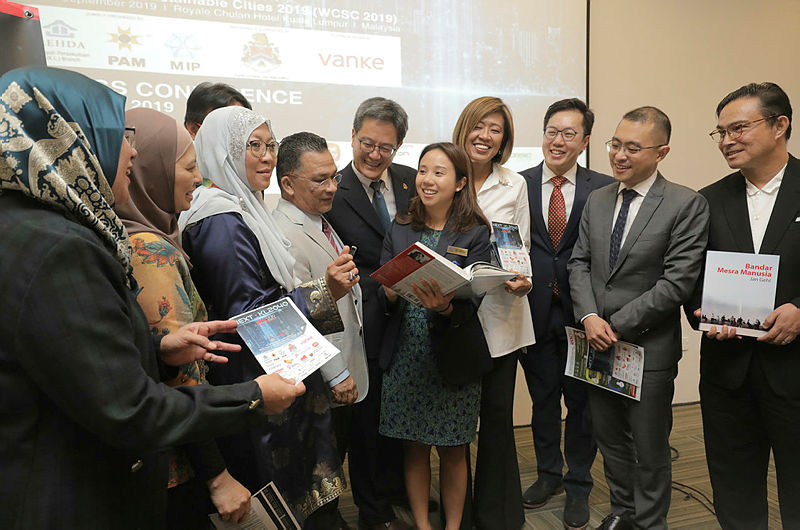PETALING JAYA: Kuala Lumpur is expected to be world-class sustainable city by 2026, says the Malaysian Institute of Planners (MIP).
“We are about 30% away and we are targeting for Kuala Lumpur to be a sustainable city within seven years,” said its president Ihsan Zainal Mokhtar.
Speaking at a press conference to launch the 11th International Conference on World Class Sustainable Cities, he said there were still many areas that needed to be considered.
“To be a sustainable city , we must look beyond the ‘green factors’ like recycling , air pollution and natural catastrophe risks. We need to examine income inequality, housing and living costs, reliability of public transportation among others,” Ihsan said.
He said another area was public transportation.
“Public transportation in Kuala Lumpur is not as well connected as compared to other more developed cities and so the public do not fully depend on public transportation,” Ihsan said.
People in the city preferred to drive as it was more reliable and this has led to traffic congestion
Senior deputy director City Hall (DBKL), Nik Mastura Diyana said the 11th WCSC 2019 is a constructive platform as well as a strategic networking arena for stake holders and those in related fields to address how Kuala Lumpur and other cities in Malaysia should move forward.
Organising committee chairman, Adrina Muztaza said Kuala Lumpur is set to embark on a new journey with its new KL City Plan 2020-2040.
“This conference series is themed ‘Next: KL2040” will explore how Kuala Lumpur and other cities in Malaysia can prepare for the challenges towards becoming world-class sustainable and livable cities.
She added that the re-planning for the next 20 years has started with DBKL taking a long-term view of its development plans and challenges from various perspectives such as demographic changes, climate change, technology disruptions and scarcity of land.
The conference, to be held on Sept 19, is jointly organised by the Real Estate & Housing Developers Association Malaysia, Kuala Lumpur, MIP and the Malaysian Institute of Architects.










